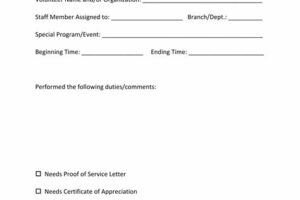Table of Contents
A volunteer coach job description typically involves providing coaching and guidance to individuals or teams in a specific sport or activity. This role requires strong communication and leadership skills, as well as a passion for helping others develop their skills and achieve their goals. Volunteer coaches may assist with training sessions, organize competitions, and offer support and encouragement to participants. This rewarding position offers an opportunity to make a positive impact on the lives of others while fostering personal growth and teamwork.
Are you passionate about sports and want to make a positive impact on young athletes’ lives? If so, we have an exciting opportunity for you as a Volunteer Coach! As a volunteer coach, you will play a crucial role in developing the skills and character of our athletes. Whether you are an experienced coach looking to give back to the community or someone who simply loves the game and wants to share your knowledge, this position offers a rewarding experience. Join our team and help shape the future of these aspiring athletes while gaining valuable coaching experience.
Introduction
In the world of sports, coaches play a vital role in guiding and developing athletes’ skills and abilities. However, not all coaching positions are filled by professionals; many organizations rely on volunteer coaches to support their teams. A volunteer coach is an individual who dedicates their time and expertise to help athletes reach their full potential. In this article, we will explore the job description of a volunteer coach and the responsibilities they undertake.
Role and Responsibilities
A volunteer coach’s primary role is to assist the head coach in training and developing athletes. Their responsibilities may vary depending on the sport and level of competition, but typically include:
1. Assisting in Practice Sessions
The volunteer coach actively participates in practice sessions, helping to organize drills, provide feedback, and facilitate skill development. They work closely with the head coach to ensure that training sessions run smoothly and efficiently.
2. Providing Individualized Coaching
Each athlete has unique strengths and weaknesses. The volunteer coach recognizes these differences and offers personalized coaching to help athletes improve their skills and overcome challenges. They provide guidance and support tailored to each individual’s needs.
3. Supporting Game Day Operations
On game days, the volunteer coach assists in various operational tasks, such as setting up equipment, coordinating team logistics, and ensuring a safe and organized environment for the athletes. They may also provide input during matches and offer suggestions to the head coach.
4. Promoting Sportsmanship and Team Spirit
A crucial aspect of being a volunteer coach is instilling values of sportsmanship, respect, and teamwork in athletes. They serve as role models, encouraging positive behavior and fostering a supportive team culture.
5. Communicating with Athletes and Parents
Effective communication is essential for a volunteer coach. They regularly update athletes and parents about training schedules, upcoming events, and individual progress. Additionally, they address any concerns or questions raised by the athletes or their families.
Qualifications and Skills
While volunteer coaching positions may not require formal qualifications, possessing certain skills and attributes can greatly enhance an individual’s ability to fulfill the role effectively. Some of these qualifications and skills include:
1. Knowledge of the Sport
A volunteer coach should have a good understanding of the sport they are involved in. This includes knowledge of the rules, techniques, and strategies specific to the sport, allowing them to provide accurate guidance and instruction to the athletes.
2. Coaching Experience
Prior experience in coaching, even at a recreational level, can be highly beneficial. It helps the volunteer coach understand the dynamics of working with athletes, managing teams, and developing training programs.
3. Patience and Adaptability
A volunteer coach must be patient and adaptable in their approach. Athletes have different learning styles and progress at different rates. The ability to adjust coaching methods and remain calm and composed is crucial in supporting each athlete’s growth.
4. Strong Communication Skills
Clear and effective communication is vital for a volunteer coach to convey instructions, provide feedback, and establish rapport with athletes and parents. They should be able to listen attentively and articulate their thoughts concisely and respectfully.
5. Passion and Dedication
A volunteer coach should have a genuine passion for the sport and a desire to help athletes thrive. Their commitment to the team and willingness to go the extra mile are essential qualities that inspire and motivate athletes.
Conclusion
Volunteer coaches play an invaluable role in shaping the future of young athletes. Their dedication, knowledge, and guidance contribute significantly to the overall development of individuals and teams. By embracing the responsibilities outlined in this job description and possessing the necessary qualifications and skills, volunteer coaches can make a lasting impact on the lives of aspiring athletes.
Volunteer Coach Job Description
The role of a Volunteer Coach is to provide support and guidance to athletes in a specific sport, focusing on their skill development, performance improvement, and overall well-being. This position requires a strong knowledge of the sport, effective communication skills, and a passion for helping others succeed.
Responsibilities and Duties
As a Volunteer Coach, your main responsibilities include planning and conducting practice sessions that focus on skill development, strategy, and teamwork. You will provide individualized coaching and feedback to athletes, identifying areas for improvement and implementing appropriate training techniques. Additionally, you will assist in organizing and coordinating team events, matches, and tournaments to ensure a smooth and efficient operation.
Player Development
Your role as a Volunteer Coach is crucial in the overall player development process. By identifying individual strengths and weaknesses, you can tailor training sessions to meet each athlete’s specific needs and help them reach their full potential. This includes monitoring progress, setting goals, and providing ongoing support to foster growth.
Mentorship and Leadership
In addition to coaching on technical skills, you will act as a mentor and leader to athletes. Creating a positive and inclusive team environment, promoting sportsmanship, discipline, and respect are essential. Through your guidance, you will help develop athletes’ character traits, such as perseverance, teamwork, and self-confidence.
Safety and Risk Management
Ensuring the safety of all athletes is a priority for the Volunteer Coach. You will adhere to safety guidelines and procedures, assess potential risks, and actively prevent injuries by implementing appropriate warm-up exercises, providing protective gear, and teaching proper techniques. In case of emergencies, you are trained to handle and respond promptly.
Collaboration with Staff and Parents
Collaborating closely with other coaching staff is essential to maintain a coordinated approach. Regular communication with parents is important to keep them informed about team activities, individual progress, and any concerns. Building strong relationships with both staff and parents fosters a supportive and cohesive team environment.
Continued Professional Development
As a Volunteer Coach, continuous learning is vital for remaining up-to-date with the latest coaching techniques and strategies. Attending training workshops, seminars, and conferences not only enhances coaching skills but also demonstrates a commitment to ongoing growth and improvement.
Commitment and Schedule
As a Volunteer Coach, dedication and reliability are essential. You should be committed to attending all practices, games, and team events. Flexibility is also important, as you may need to adjust schedules to accommodate occasional changes or unforeseen circumstances. This role requires a genuine passion for the sport and a willingness to invest time and effort into the development of athletes.
As a professional volunteer coach, it is essential to have a clear and concise job description that outlines the responsibilities and expectations of the role. A well-written job description not only attracts qualified candidates but also sets the tone for professionalism and ensures all parties involved are on the same page.
When writing a volunteer coach job description, it is important to use a professional voice and tone to convey the seriousness of the role. Here is an example of how this can be achieved:
Volunteer Coach Job Description
- Position Overview: The volunteer coach will be responsible for assisting in coaching and training athletes in [sport/activity] within the [organization/club/school]. They will work closely with the head coach and support the development of young athletes.
- Responsibilities:
- Assist the head coach in planning and delivering training sessions, ensuring they align with the team’s goals and objectives.
- Provide individualized guidance and feedback to athletes, focusing on skill development, technique improvement, and overall performance enhancement.
- Help create a positive and encouraging team environment by fostering sportsmanship, teamwork, and respect among athletes.
- Attend and actively participate in team meetings, coaching clinics, and workshops to stay updated on the latest coaching techniques and strategies.
- Collaborate with other coaches and staff members to ensure a coordinated approach to training and competition preparation.
- Assist in organizing and coordinating team events, competitions, and tournaments, including travel arrangements and logistics.
- Maintain accurate records of attendance, player progress, and any injuries or incidents that occur during training sessions or competitions.
- Qualifications:
- Possess a strong background in [sport/activity], with a deep understanding of the rules, techniques, and strategies.
- Previous coaching experience, preferably at the [youth/high school/college] level.
- Strong communication and interpersonal skills to effectively interact with athletes, parents, and fellow coaches.
- Energetic and passionate about developing young athletes both on and off the field.
- Ability to work flexible hours, including evenings and weekends, to accommodate team practices and competitions.
- Valid [sport/activity] coaching certifications and first aid/CPR training are highly desirable.
- Must pass a background check and adhere to all organizational policies and guidelines.
- Application Process: Interested candidates should submit their resume, cover letter, and any relevant coaching certifications to [contact/email/website]. Only shortlisted candidates will be contacted for an interview.
By using a professional voice and tone throughout the job description, potential volunteer coaches will understand the level of commitment and professionalism expected from them. This will attract individuals who are genuinely passionate about coaching and dedicated to making a positive impact on young athletes’ lives.
Thank you for taking the time to read our blog post about the Volunteer Coach job description. Being a volunteer coach is a rewarding experience that allows you to make a positive impact on the lives of others while pursuing your passion for sports and mentorship. In this closing message, we would like to summarize the key points discussed in the article and reiterate the importance of this role.
Firstly, as a volunteer coach, your primary responsibility is to provide guidance and support to athletes in their pursuit of excellence. You will be working closely with individuals of various ages and skill levels, helping them develop their athletic abilities and fostering a love for the sport. Your role extends beyond simply teaching the rules and techniques; it involves instilling important values such as teamwork, discipline, and perseverance.
Moreover, a successful volunteer coach is someone who possesses strong communication and leadership skills. You will be responsible for effectively communicating instructions and strategies to the team, providing constructive feedback, and motivating athletes to give their best effort. Additionally, you will play a crucial role in maintaining a positive team environment, where everyone feels valued and supported.
In conclusion, becoming a volunteer coach is an incredible opportunity to make a difference in the lives of others through your love for sports and mentorship. It requires dedication, patience, and a genuine passion for helping others achieve their full potential. By taking on this role, you will not only contribute to the development of athletes but also become part of a supportive community where lifelong friendships are formed. If you are interested in becoming a volunteer coach, we encourage you to reach out to local sports organizations or schools in your area to inquire about available opportunities. Together, let’s inspire and empower the next generation of athletes!
Thank you once again for visiting our blog and showing interest in the Volunteer Coach job description. We hope this article has provided you with valuable insights and inspired you to explore this fulfilling role. If you have any further questions or would like more information, please feel free to contact us. Good luck on your journey as a volunteer coach!
Video Volunteer Coach Job Description
Here are some common questions that people also ask about Volunteer Coach Job Description:
What are the main responsibilities of a volunteer coach?
- Providing guidance and instruction to athletes or participants.
- Developing training programs and practice schedules.
- Teaching skills and techniques related to the sport or activity.
- Motivating and inspiring athletes to reach their full potential.
- Ensuring the safety and well-being of all participants.
- Evaluating and assessing individual and team performance.
Is previous coaching experience required for a volunteer coach position?
How many hours per week does a volunteer coach typically work?
What qualifications or certifications are required for a volunteer coach?
- A background check to ensure the safety of participants.
- Completion of a coaching certification program or training course.
- Knowledge of the sport or activity rules and regulations.
- Basic first aid and CPR certification for emergency situations.
- Good communication and interpersonal skills.
What are the benefits of becoming a volunteer coach?
- The opportunity to make a positive impact on the lives of athletes or participants.
- The chance to share knowledge and passion for a particular sport or activity.
- The ability to develop leadership and mentoring skills.
- The satisfaction of seeing athletes grow and achieve their goals.
- The potential to form lasting relationships with fellow coaches and participants.
A volunteer coach is responsible for:
While previous coaching experience can be beneficial, it is not always a requirement for a volunteer coach position. Many organizations value individuals who have a passion for the sport or activity and are willing to learn and grow in their coaching role. Training and support may be provided to help volunteer coaches develop the necessary skills and knowledge.
The number of hours a volunteer coach works can vary depending on the organization and the specific sport or activity. Some volunteer coaches may only dedicate a few hours per week to coaching, while others may commit to several hours each day. It is important to discuss the expected time commitment with the organization offering the volunteer coach position.
The qualifications or certifications required for a volunteer coach can vary depending on the organization and the level of coaching. Some common requirements may include:
Becoming a volunteer coach can have several benefits, including:






